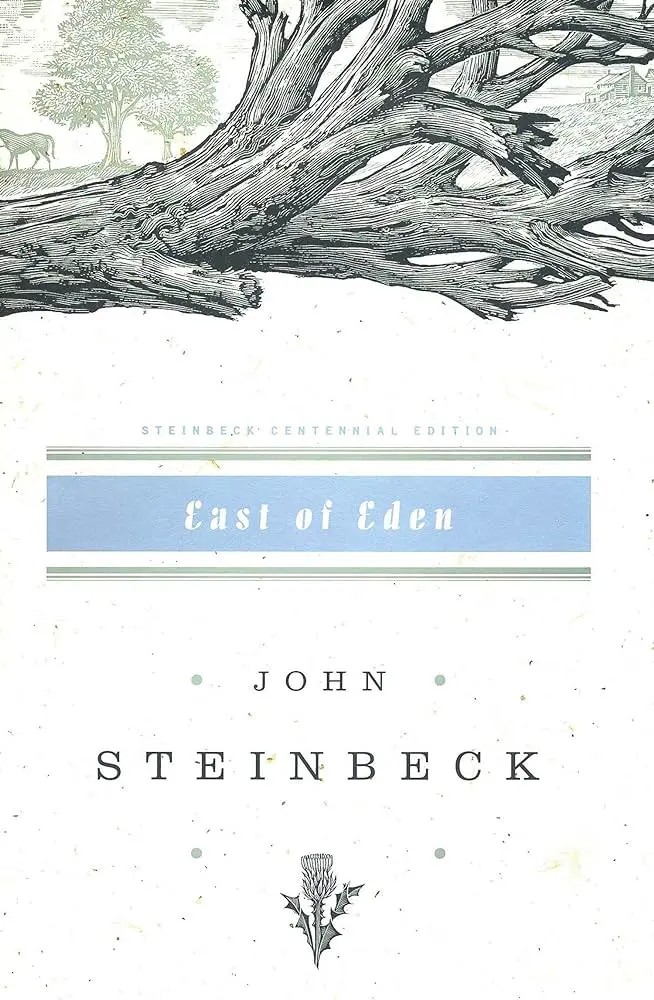Books books books: October 2023
Hello reader(s)! I celebrated my birthday this month (well, more precisely, today 🎉 You remembered, right?), and boy, what a year it has been. All things considered, I’m glad I’ve picked up reading and, to some extent, writing. Nonetheless: another month means another set of books to review! So, have I been reading?
Man’s Search for Meaning
Dr. Viktor E. Frankl’s Man’s Search for Meaning is, at its core, a story about and reflection on the human experience. This book is split into two parts: the first is a bleak, yet eye-opening deep-dive into Dr. Frankl’s experiences as a prisoner of war. After having lost his family, friends, future, and worldly possessions, Frankl is left with nothing but intangibles: a clear conscience, his faith, and commitment to others’ well-being. But it’s these intangibles that Dr. Frankl credits with his ability to persist despite the harrowing conditions of concentration camps, and specifically, his will (or reason) to keep going.
The second half is a closer look into logotherapy, Dr. Frankl’s proposed form of psycho-therapy centered on meaning (logos), rather than the Freudian focus on pleasure or Adlerian focus on power. There, Dr. Frankl introduces logotherapeutic principles like noögenics and noö-dynamics, the existential vacuum, and offers his perspective on key questions around suffering, meaning, and behavior. Through these topics, you get a more direct understanding of how Dr. Frankl’s ideas and proposed solutions can be applied not only in harrowing camp conditions, but also in more “mundane” settings, like struggling with your life’s meaning, lacking a sense of purpose, and reckoning with the myriad obstacles between you and the person you want to be. Overall, I enjoyed this half as a counter-balance – in tone, setting, and even purpose – to the first half.
Man’s Search for Meaning was published in 1959, but in so many ways its reflections and observations on life at the tragic forefront of the human experience feel timeless and prescient. I happened to pick up this book the day of Hamas’ invasion of Israel, and in the immediate (and ongoing) aftermath, my Twitter feed – and perhaps most of the world – was absolutely divided: I saw calls for collective punishment against the innocent civilians of Gaza right beside hard-line, ideological defenses of Hamas’ terrorism against Israeli women and children. In light of the diametrically-opposed and charged rhetoric, I wanted to highlight two powerful passages that stuck with me long after putting this book down:
It is apparent that the mere knowledge that a man was either a camp guard or a prisoner tells us almost nothing. Human kindness can be found in all groups, even those which as a whole it would be easy to condemn. The boundaries between groups overlapped[,] and we must not try to simplify matters by saying that these men were angels and those were devils. […] From all this we may learn that there are two races of men in this world, but only these two—the “race” of the decent man and the “race” of the indecent man. Both are found everywhere; they penetrate into all groups of society. No group consists entirely of decent or indecent people.
— Man’s Search for Meaning, Viktor E. Frankl, p. 86
Now, being free, [former prisoners of war that could not escape the psychological brutality of the camps] thought they could use their freedom licentiously and ruthlessly. The only thing that had changed for them was that they were now the oppressors instead of the oppressed. They became instigators, not objects, of willful force and injustice. They justified their behavior by their own terrible experiences. […] Only slowly could these men be guided back to the commonplace truth that no one has the right to do wrong, not even if wrong has been done to them.
— Man’s Search for Meaning, Viktor E. Frankl, p. 90 – 91
To me, this book has an evergreen message that cuts to the fundamental elements of the human condition: life, love, pleasure, meaning, suffering, death. I hope to revisit this book at least every few years to remind myself of its impact. Five stars.
Dopamine Nation: Finding Balance in the Age of Indulgence
I actually picked up Dr. Anna Lembke’s Dopamine Nation while I was still working through Man’s Search for Meaning. Thinking it would be a nice palate cleanser after reading about some of the lowest possible human experiences, I started reading when I wanted to switch things up. Of course, the book immediately dives into the tragic story of a man struggling with a crippling and life-long addiction to pornography — just the break I needed!
Dr. Lembke is not shy in directly addressing the reader of the 21st century: overstimulated, chemically bound to boredom and leisure, and looking for a way off of the dopamine-at-all-times ride. This book is divided into three parts, broadly addressing how and why we pursue (and pursue, and pursue, and pursue, and …) pleasure, how to recognize and temper our addictions, and – somewhat surprisingly – how the proactive pursuit of pain can help us balance pleasure. As someone who has absolutely struggled with some of the vices detailed in her patients’ interviews, I appreciated Dr. Lembke’s approach to understanding their circumstances and what worked for them. Under the DOPAMINE framework – data, objectives, problems, abstinence, mindfulness, insight, next steps, experiment – she introduces and details dopamine fasting as a vehicle for both restoring balance to the pleasure-pain balance and restoring our ability to experience pleasure and enjoyment in all of its forms. At the very least, I’ll be taking the nifty framework with me — maybe printed out on my fridge!
After finishing this book, I took a look at some of the reviews on Goodreads was pretty surprised to see a sequence of one-star reviews. Dopamine Nation likely isn’t the single best resource on neuroscience, psychology, pharmacology, or even addiction, but in my opinion, it effectively intersects those topics in a cohesive manner, enriched by Dr. Lembke’s personal and professional experiences, which is incredibly valuable to those of us that aren’t regulars in those spaces.1
Overall, I enjoyed the book most when it explored more practical and applied means for managing the proverbial wall of dopamine we’re increasingly facing. I did myself slipping away during some of the scientific exposition and interpretation as much – especially when Dr. Lembke appeals to outdated scientific experiments and interpretations – but overall, this was still an enjoyable read! Three and a half (rounded up to four) stars.
Soooooo…about Breasts and Eggs
Long-time2 readers may be asking: “Danny, where’s Breasts and Eggs by Mieko Kawakami? You said you would read it this month. You specifically said October was a great month for reading 3 books because it has 31 days. Did you lie to us? Are we some sort of joke to you?” And no, dear reader(s), rest assured that I take this single-digit blogging outlet extremely seriously.
Unfortunately, I only finished last month’s reads (specifically, Before the Coffee Gets Cold) in early-ish October, meaning I…did not finish Breasts and Eggs this month. I’m a bit more than half-way done, but seeing as how October only has two days left, I don’t think it’ll happen. For that, I humbly offer you:
- my deepest apologies,
- a complimentary “Danny x DALL·E 3” collaboration artwork of a scorpion reading a book ("Scoppon Booon") by a cozy fireplace (and peep the detail on that rug!):

May this serve as a peace offering until next month’s review (which will include Breasts and Eggs!) 🙏🏻
Next up…
Going into October, I was optimistic in my ability to churn through 3 books while also arranging a few life logistics. As the saying goes, “the best-laid plans of mice and men often go awry,” and mine was no exception. I’m glad to have checked off two (point five (ish!)) of my targets, and I’ve decided to calibrate November’s reading load accordingly — but that doesn’t mean I can’t have fun with it!
I had the idea to make November a month of themed reading, and I’ve decided that theme is…legendary American writer John Steinbeck! Let’s see what we have in store:
- Cannery Row: to be totally honest, I had never heard of this book until a friend recommended it to me as being a beautiful read. That’s…basically enough to get me to read something!
- East of Eden: I remember reading most (if not all?3) of East of Eden in my senior year of high school and loving it. I, like many high school students in America, had been exposed to John Steinbeck through classics including Of Mice and Men and The Pearl, but East of Eden is where I finally understood why Steinbeck is HIM. I’m really looking forward to experiencing this story again!
In preparation for those reads, I ordered these books with their centennial edition covers.4 I never could forget how elegant East of Eden’s cover looked — I mean, judge for yourself:

It’s a certified 10/10! Also – let’s be real – if a book looks nice and you just so happen to really like it, you deserve to buy it…as a little treat.
Anyways, as October draws to a close, I’m filled with gratitude for the stories I’ve been able to experience and insights I’ve gained. Happy reading!
I’d love to say I’m not a neuroscientist…but uh…it is widely known and recognized that I took a neuroscience course in college and got an “A”…so… ↩︎
lol ↩︎
I actually loaded up the native iOS Books app and realized it had stored the exact page I finished reading in high school. I made it to chapter 45 – FORTY FIVE! – which is 82% of the book. It’s gonna be a cruel November. ↩︎
Did you know that first edition printings of East of Eden have a typo on page 281 (“bite” instead of “bright”), and for some reason that’s a Very Cool™ distinction for eBay listings? No? ↩︎